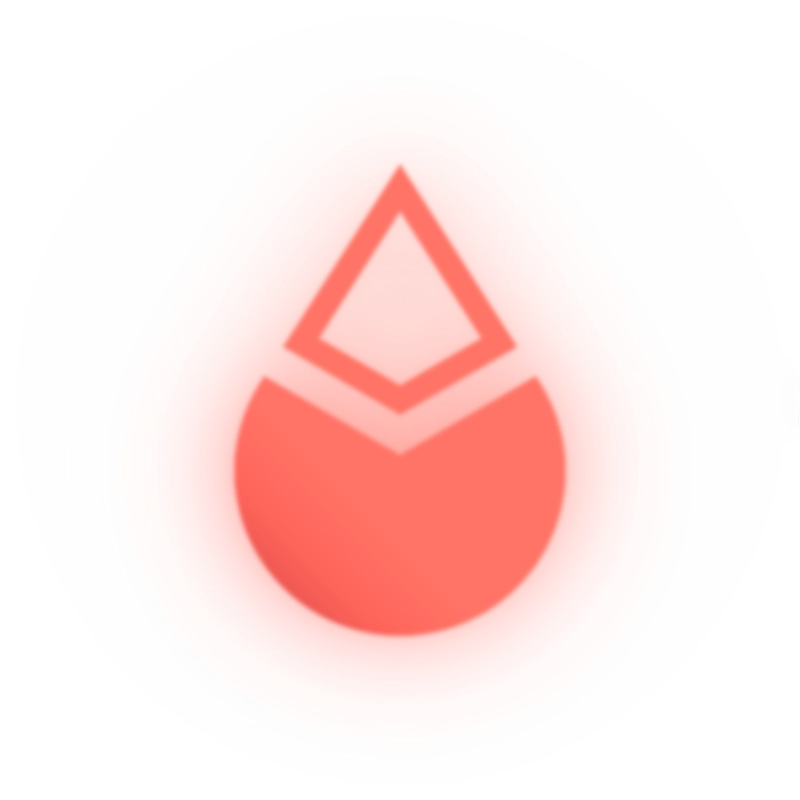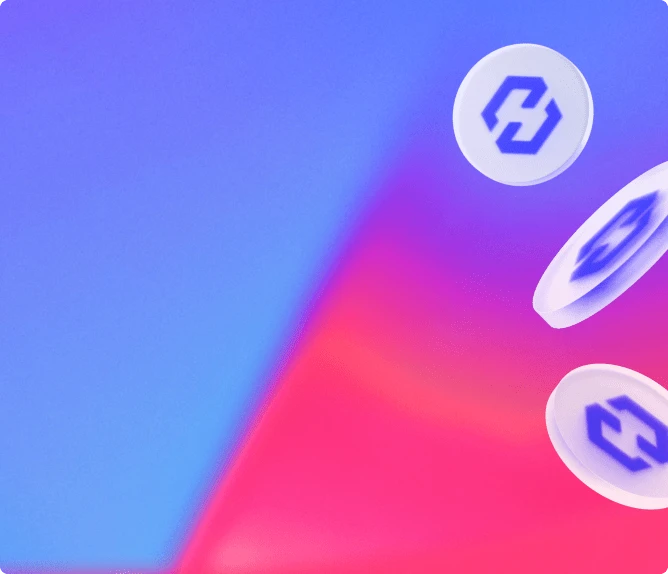Investing in crypto-assets carries risks of liquidity, volatility, and partial or total capital loss. Crypto-assets held are not covered by deposit and securities guarantee mechanisms.


Sign up for our newsletter
Partners
Coinhouse
Our accounts
Coinhouse
Coinhouse SAS with a capital of €210,000, RCS Paris 815 254 545, headquarters: 14 Avenue de l'Opéra 75001 Paris – support@coinhouse.com. Registered with the AMF for activities related to the purchase/sale of digital assets against legal tender, the exchange of digital assets for other digital assets, and the custody of digital assets for third parties under the registration number: E2020-001.
Coinhouse payment solutions
Company registered with the Paris RCS under the number 914 384 557, registered with the Prudential Control and Resolution Authority as a payment service agent under the number 727503 of the electronic money institution Treezor, headquartered at 33 Avenue de Wagram, 75017 Paris.
General conditions, disclaimers and legal documents.



The Lido Finance project (Lido price) is a decentralized finance (DeFi) platform that aims to solve one of the main challenges facing the blockchain ecosystem: the liquidity of staked assets.
Launched in 2020, crypto Lido has quickly become a major player in the DeFi ecosystem, offering an elegant and secure solution for crypto-asset holders looking to earn staking rewards while remaining free to enter or exit their positions.
Staking, a central pillar of many blockchain networks, involves placing crypto-assets in escrow to secure the network.
The quid pro quo for this lock-in takes the form of rewards received in return.
However, this approach often has a major drawback: the illiquidity of the stashed funds.
In other words, once funds are committed to the staking process, they cannot be used elsewhere, limiting investors’ flexibility.
What’s more, on some networks, lock-in periods ranging from a few days to several weeks can act as a deterrent to investors.
This is where Lido comes in.
The platform offers an innovative solution, enabling users to delegate their staked assets to a validation pool that represents them on the network.
This means that users can continue to receive their staking rewards while having the freedom to both enter and exit their staking position with greater flexibility, but also to use their assets for other purposes.
One of Lido’s key advantages is its robust, security-focused design.
The platform uses a decentralized architecture, which spreads risk and ensures maximum protection of users’ funds.
In addition to its core liquid staking function, Lido also offers other features that enrich its ecosystem.
For example, the platform offers incentives to users who provide liquidity on DeFi’s markets.
In this way, Lido helps boost the overall liquidity of the DeFi ecosystem.
Finally, it’s important to emphasize the dynamic community aspect that surrounds Lido.
The platform benefits from a strong community of users and contributors who actively participate in the development and continuous improvement of the project.
Buy LDO tokens online with Coinhouse.
Konstantin Lomashuk: Konstantin Lomashuk is a co-founder of Lido Finance and brings valuable expertise in software engineering and blockchain development.
Prior to co-founding Lido, Konstantin accumulated a wealth of experience as a senior engineer at Parity Technologies, where he worked on projects crucial to the Ethereum ecosystem.
In particular, he contributed to the development of Substrate, a modular blockchain framework.
Konstantin played a central role in developing Lido’s technical architecture, focusing on the system’s security and robustness.
His technical expertise was essential in designing a secure and reliable DeFi platform. Vasiliy Shapovalov: As co-founder of Lido Finance, Vasiliy Shapovalov, also known by the pseudonym “vasa”, is a recognized expert in the development and architecture of blockchain systems.
Before joining Lido, Vasiliy worked on a number of innovative blockchain projects, acquiring solid technical experience in the process.
His role at Lido was essential in designing and implementing robust security mechanisms, which greatly contributed to establishing user confidence in the platform.
Vasiliy’s deep understanding of the technical challenges and opportunities offered by blockchain technology has been a major asset to Lido’s development and success. Jordan Fish: Jordan Fish, as co-founder of Lido Finance, brings a valuable perspective on the economics and governance of blockchain projects.
Prior to co-founding Lido, Jordan worked at ConsenSys, where he gained solid experience in DeFi.
In particular, he was involved in projects focused on governance and incentive alignment.
At Lido, Jordan plays a crucial role in designing governance mechanisms and developing a solid economic vision for the platform.
His expertise in crypto economics and incentive mechanisms contributes significantly to the evolution and prosperity of Lido Finance. Lido DAO partners VCs who have invested in the project include Semantic VC, ParaFi Capital, Libertus Capital, Bitscale Capital, StakeFish, StakingFacilities, Chorus, P2P Capital and KR1. The angel investors who also helped Lido get off the ground are Stani Kulechov of Aave, Banteg of Yearn, Will Harborne of Deversifi, Julien Bouteloup of Stake Capital and Kain Warwick of Synthetix.
Several DeFi platforms have emerged to provide liquid staking solutions.
Lido Finance is the undisputed leader in this field.
The platform enables users to entrust their staked assets and receive liquid staked tokens (such as stETH for Ethereum) in return, which can be exchanged and used within the DeFi ecosystem.
Lido places a strong emphasis on fund security and uses sophisticated mechanisms to protect delegated assets.
In addition, it operates on several blockchains: Ethereum , Polygon (buy MATIC with Coinhouse) and Solana.
By delegating their funds to a liquid staking platform, users avoid certain risks linked to network operation or the security requirements associated with direct staking.
Liquid staking platforms manage these technical aspects, thus securing users’ funds.
Liquid staking broadens access to staking participation.
It enables a greater number of crypto holders to contribute to the network’s operation and benefit from staking rewards, thus promoting the network’s decentralization.
Liquid staking is a major innovation in blockchain and decentralized finance (DeFi) that aims to solve the problem of illiquidity of staked assets.
To understand the importance of liquid staking, it is first necessary to understand what staking is and the advantages it offers participants within a network.
Staking is a fundamental process in the vast majority of blockchains.
In fact, all networks based on the Proof of Stake (PoS) consensus model require staking.
This involves “locking” a certain amount of cryptos, which guarantees the smooth running of the network and reinforces its security.
In return, staking participants receive rewards in the form of tokens native to the network.
This active participation is essential for the stability and security of a blockchain network.
Stakers are important not only for network governance, but also for validating transactions on the network.
Locked” cryptos are therefore a form of guarantee that no action harmful to the network, such as false transactions, will be carried out.
On some Proof of Stake (PoS) networks, stakers may experience “slashing” of all or part of the cryptos they have locked.
This means that the cryptos are seized by the network to punish a staker who has not behaved as he or she should have on the network.
As explained above, traditional staking has one major drawback: once funds are committed to the staking process, they are “locked” and cannot be used elsewhere.
This illiquidity of staked assets creates a dilemma for crypto holders.
On the one hand, they may choose to participate in staking to receive rewards, but this means sacrificing the possibility of using these funds for other activities, such as trading, lending or other investments.
This is where liquid staking comes in as a transformative innovation.
Liquid staking enables holders of crypto-assets to participate in staking while retaining the liquidity of their assets.
Instead of locking up their funds, users can entrust their staked tokens to a liquid staking platform.
In return, they receive staked tokens, which are the perfectly liquid representation of their staked cryptos.
They can be exchanged, used in DeFi applications, or simply kept in a wallet.
This innovation is particularly powerful because it eliminates the traditional trade-off between staking funds to earn rewards and the need to have liquid funds for other uses.
With liquid staking, users can now have the best of both worlds.
The LDO token is the governance token for Lido’s Decentralized Autonomous Organization (DAO).
This means that Lido incorporates governance mechanisms that enable holders of its native token, LDO, to actively participate in decision-making relating to the platform.
It is used to vote on protocol parameters and govern Lido DAO’s cash flow.
It is this entity that controls the evolution of the protocol in terms of parameters but also the use of treasury funds, etc.
With the mission of making staking simple, liquid and decentralized for investors, Lido DAO’s responsibilities include: – Launching Lido – Deploying the protocol’s smart contracts – Choosing fees and other protocol parameters – Assigning the first node operators approved by the DAO – Proposing and updating Lido parameters – Approving incentives for parties who contribute to the DAO’s goals (e.g. stETH liquidity providers) – Proposing and updating the Lido implementation for incoming Ethereum functionalities using DAO treasury funds.
KEY FIGURES (to October 2, 2023)
| Max supply | 1 000 000 000 LDO |
|---|---|
| Max Supply | 1 000 000 000 LDO |
| Circulating Supply | 879 588 042 LDO |
| MarketCap | $1 472 000 000 |
| Fully Diluted Market Cap | $1 6000 000 000 |
| Fully Diluted Valuation: TVL Ratio | 0,11 |
| Inflation rate / Issue / Burn | All LDOs have already been issued, so there is no burn mechanism at present. |
ALLOCATION
| Cash and cash equivalents | 253 200 000 |
|---|---|
| Investors (Seed round) | 221 800 000 |
| Developers | 200 000 000 |
| Founders and future employees | 150 000 000 |
| Investors (Paradigm round) | 100 000 000 |
| Validators and signature holders | 65 000 000 |
| Investors (Dragonfly round) | 10 000 000 |
TECHNICAL DATA (at October 2, 2023)
| Total Value Locked (TVL) | 14.5 billion (1st DeFi protocol) |
|---|---|
| Awards distributed | $725 000 000+ |
| Share of Ethers stored on the Ethereum network by Lido Finance | 32% (8,800,000 ETH) |
| Number of users | 305 000+ |
| Consensus mechanism | Proof of Stake (PoS): Lido operates on blockchains that enable staking. |
| Programming languages | Solidity (Ethereum-based language) |
| Security | Bug bounty: up to $2 million to white hats who find flaws in the code. Audits: regular audits are carried out and referenced here: https: //github.com/lidofinance/audits |
| Governance | LDO token holders participate in the protocol improvement process (proposals, votes, etc.). |
| Compatible portfolios | Etherum (ETH) and Polygon (MATIC): Metamask, Ledger, Trust Wallet, etc. Solana (SOL): Phantom, Solflare, Ledger, etc. |
LIDO DAO’s plans for 2024 include several key initiatives aimed at strengthening its position in the decentralized finance (DeFi) ecosystem and expanding its service offering:
Lido is the leader in liquid staking.
Since the Shanghai update on the Ethereum blockchain, it has been possible to withdraw staked Ethers (ETH).
This possibility has greatly increased the attractiveness of staking on Ethereum, and Lido Finance has benefited from this increased interest.
On the broader theme of Decentralized Finance (DeFi), Lido is also the protocol with the most TVLs, i.e. the most funds placed on the platform.
The Lido project is now extending to other blockchains, and its expansion is supported by the Lido DAO, which votes these measures through the holding of LDO tokens.
Share the article


Download app